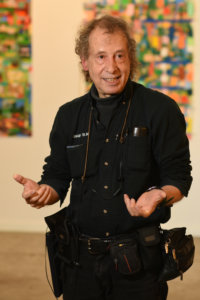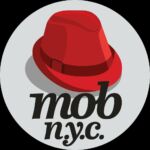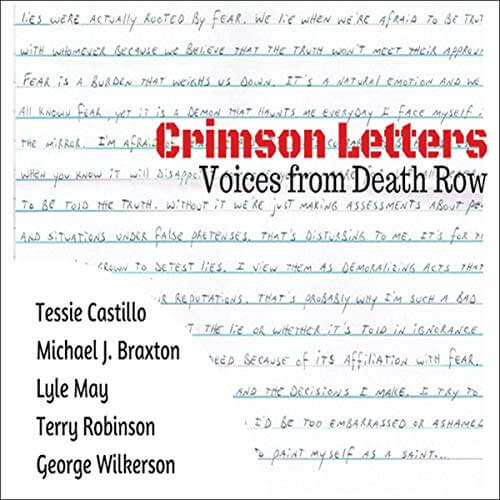Howard Bloom – The End of the Office: The Death of the Office Building
“In The workplace, where taught to worry about what happens if we don’t have full, complete knowledge of every detail. But if you create a culture in an environment that we wards people for taking risks, even if they don’t succeed, you can start changing behavior”…..Reshma Saujani
Howard Bloom is a modern-day Messiah and visionary and though often compared to such historic minds as Albert Einstein, Steven Hawkins and Sigmund Freud, he often exceeds the power of their theories with his own, frequently giving voice to words unsaid.
Continuing to make history and write it down as well, Bloom is an esteemed author of literally majesties including, “Einstein, Michael Jackson, and Me, Global Brain“, “The God Problem”, “The Lucifer Principle”, “How i Accidentally Started The Sixties“, “The Mohammed Code“, and “The Genius of the Beast.” Bloom was dubbed “The greatest press agent that rock and roll has ever known.” As a scientist knowing nothing about music Bloom managed to create the biggest PR company known to man representing the biggest superstars on the planet including Billy Joel, Bette Midler, Billy Idol, Bob Marley, Peter Gabriel, Aerosmith, AC/DC, Chaka Khan, ZZ Top, Michael Jackson, Queen, Prince and hundreds of others.
Ten years prior to our real time now Bloom boldly predicted that the office building would become obsolete in an article published in KurzweilAI. Bloom follows his most intense obsessions theories and thoughts mercilessly. He makes them logical and never edits his own soul. In a conversation with Bloom he unleashed his thoughts regarding the death of the office building. That potentially affects every business, real estate, whisper of capitalism and the very future of office humanity from the helicopter manager hovering over employees in a well intentioned but ill faded attempt to provide support to the time freak who needs “it” done by Monday.
What technology made the office possible?
Roughly 95 percent of us are living in big cities. That’s a big change over 120 years ago, when roughly 20% of us were living in big cities. If you live in a big city and you have a good view you will notice that more and more high-rises are going up. A lot of them are office buildings. In the 1980s when I was flying to places like Georgia, Alabama and God knows where else, you would get into a cab at the airport And as you would approach the city it was noticeable for the fact that you could see the center of the city because the center of the city pierced the skyline. they were all office buildings, so we’ve become accustomed to the office building.
Back in 1850 if you had a business you didn’t have anything called a formal office. Usually you set up a room in your home that you dedicated to your work function. That’s what an office was, a job, A responsibility, and assignment. Then in the 1870s a couple of things happened that you would’ve thought would make the office a useful place. First there was the invention of the typewriter and the invention of the telephone. But still no office. One of the major publishers in England had what was called an establishment, and it was a house. He bought the economist magazine, he hired a guy to edit it. When he hired that guy to edit it, that guy moved from his town and moved to the house where the publisher was, into a bedroom in the publishers home. He was given the privilege of sharing in the work that the servants were doing for example removing the ashes from the fireplace, or cleaning up the place. That was what an office was. Then everything changed. In 1890 there was a new invention that nobody pays any attention to but it revolutionized the way we do work. It was called the file cabinet. When the file cabinet came along that meant you can file things in folders and label them. If you manage to get a bunch of people working on a project together in the same place they could all put the records of their dealings with a given client or a given project in the file cabinet. anybody else nearby could look up the history in the file cabinet and add to it themselves. This was a radical innovation. It meant that it was valuable to not force people to work out of their homes anymore but together them in one central location around your information retrieval device, the file cabinet. Thus was born the modern office and thus was born in the modern office building.
What technology is ending the office?
All of that was built around a central file cabinet and then in 2000 an innovation came along, and information retrieval center that made gathering in one place together totally unnecessary. It’s called Google. It’s the ultimate information retrieval device. But that wasn’t enough to transform things. The laptop had been gaining in momentum since the mid-1980s and then in 2007 the computer in your hand was invented and we call that the cell phone. Suddenly you could work from anywhere. When I got out of my 15 years locked in a bed, I went to a place called the Tea Lounge to work. I write three books there. I was surrounded by people doing computer programming and God knows what else they were doing. They were doing work but not from an office. They were doing it from the café. I wrote an article 10 years ago called “ The iPad as the New Guillotine.” It basically said that one of the big problems that the offices created was bureaucracy. People got together over the central file cabinet and worked together and saw each other at the drinking fountain and those people developed a subculture of their own in which it was popular sometimes to mock the customers.

In your book The Genius of the Beast you say there is a hidden mandate to business and a hidden mandate to capitalism….What is that mandate?
In the book “The Genius of the Beast: A Radical Revision of Capitalism”: I Point out that there’s a hidden mandate to capitalism. It’s to save, lift, empower and to upgrade your neighbors. If you save, lift, and empower one neighbor you get a dollar, or 100 neighbors you get $100, or 100,000,000 people around the world and you get 100 million. Your ultimate source of revenue is your customer. Which means it contrary to the business theories of the 1980s and 1990s where everything was about satisfying your ultimate stakeholder, the owner of your stock…..that’s not your ultimate stakeholder….That’s an outrageous way of looking at things. Your ultimate stakeholder is your customer, and your job is to uplift, upgrade, and empower your customers. If you are in an insulated little subculture in an office building and you’re surrounded by people manage to attract attention by being snide about your customers which is really easy, then you tend to look down on your customers.
Why do you say the end of the office will give us a chance to bring soul back into business?
What are bureaucracies? In French bureau means a desk and a bureaucracy is an office complex. Why does it have its own special name? Because people working in a cluster of offices develop this attitude toward the people they serve. It’s the very opposite of what capitalism means. But once you had the iPad, laptop, the cell phone, all of them had a good search engine so that you had no problem accessing information. You have the equivalent and more of the old file cabinet so you could go out among the people you served. You can go out among your flock. If you spend time with the people that you serve the more you can empath their needs, and hone in on their desires, desires day have not been able to express yet.
What do you think the best way would be to take advantage of our freedom from the office?
So in the book “The Genius and the Best” I tell you the story how one day when I was running the Howard Bloom Organization LTD, I worked the way I always work which is every waking hour of the day to the best of my ability. So getting a haircut was a real problem, because I didn’t have time. Well, there was a barbershop in the building next-door. So, I went over there to get my haircut despite the fact that it was a Japanese barbershop and nobody spoke English and none of the people there had ever seen curly hair before, and they had no idea what to do with it. It didn’t matter because it meant running down the stairs and being able to go directly to the barbershop and getting out in 20 minutes. So, one day I was sitting there under whatever equipment they were using to dry my hair and there was a woman sitting next to me with her head and one of these giant helmets that dry your hair. We got into a conversation and it turned out she was a product manager for Revlon. Her job consisted of spending six months in the field, going to a big city cosmetics counter, working behind the counter, so she could get the feel of what her customers wanted. Especially those needs that we’re not satisfied by any commercial product available. When you’re sitting behind the cosmetics counter women come to you in a moment of crisis. The whole business of changing your look throws your whole system into stress. You might be thinking that somethings are to garish will make you look like a clown or somethings are too understated. You have to hit just the right sweet spot, and it is hard as hell. If you do that for 6 months you carry your costumer inside of you. So when you get back to home base the first thing that this woman would do is go to the research and development department and see what new textures were being developed, what new colors were being developed, and she would say I want this color with this texture because I know exactly how these women are going to use it. Then she would spend six months seeing how these products would develop and then go back out to the cosmetic departments back among her folds, among her sheep. She would since their needs so she could take care of it. that is something that with the iPad, the laptop and the cell phone becomes eminently possible. You don’t really need to spend a lot of time among your coworkers, although that can be very useful, but you need to know the people you serve. The people for whom you are a secular savior if you do your job well. If you do your job well it’s going to make a lot of money for your company. I made money for almost every company I worked with. There was one that just found my way of doing things too expensive. But I doubled circulation by 211%. I doubled the value of Gulf and Western‘s record holdings so that they could sell them for a lot of money. I made a lot of money for ABC and then I started my own company and my own company became the company that define what public relations was in the music industry.
What does this have to do with your latest book, Einstein, Michael Jackson & Me: A Search for Soul in the Power Pits of Rock and Roll?
It was a whole new definition of a public relations was because no matter where I went, I was empathing my end user, my customer. I was living my customer’s daily life within me, so that I could serve my customers.
So we live in New York. All of New York is an office building…what are we going to do with that?
That’s a very good question. There is an enormous value to living in cities. There are statistics that prove that people living in cities are more productive than people living in towns or the countryside. In a city it’s easier for great minds to meet each other and cook up things together. However, for people to meet up now and cook up things together you can be anywhere. You can find your soulmate all the way from Australia to Russia on-line, and accomplish astonishing things. I know this to be fact because I run for space groups with people from Romania and Australia and all kinds of places. However, being with people who you know and will be comfortable with in person is easier when you live in a city.
The official website for Howard Bloom may be found at https://www.howardbloom.net










